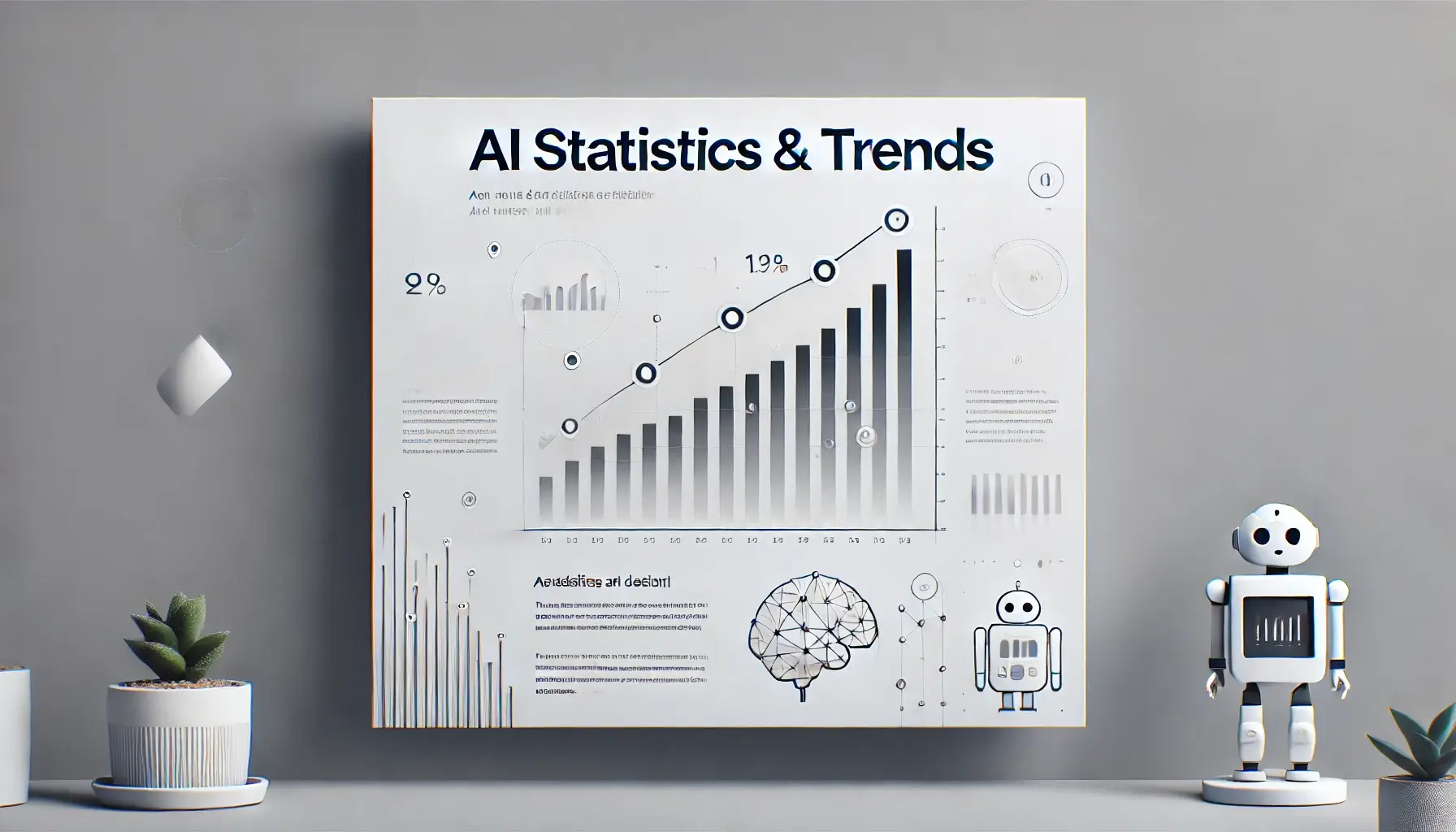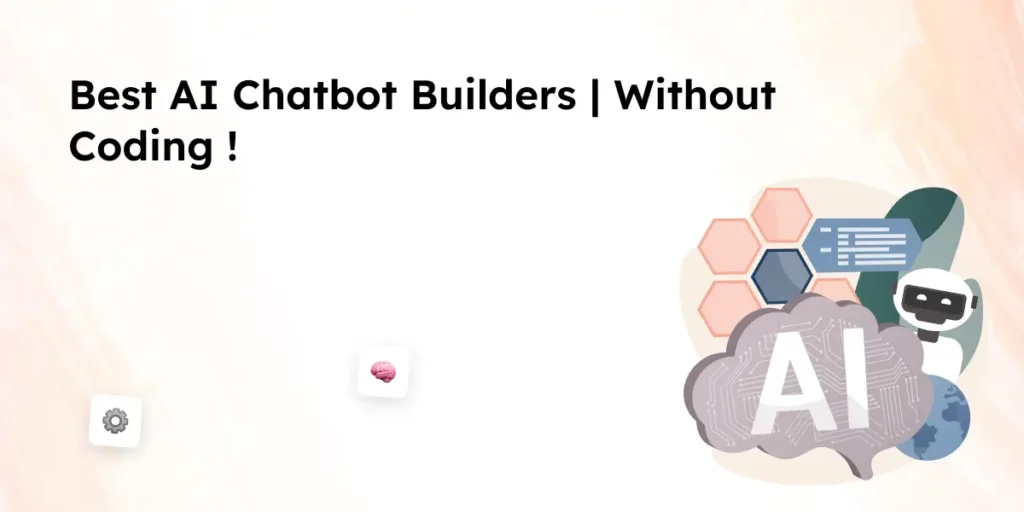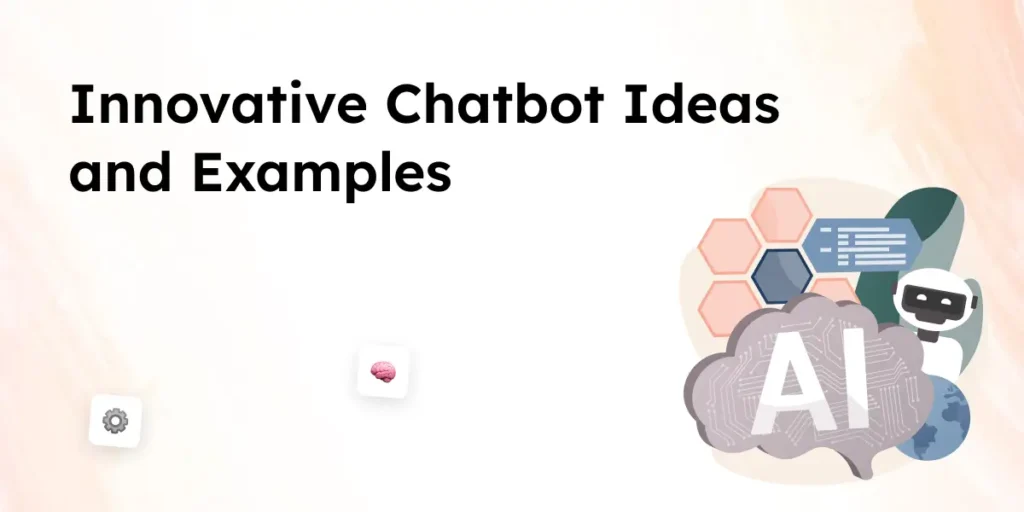Artificial Intelligence (AI) is not just a buzzword anymore—it’s shaping the way we live, work, and interact with technology. In 2025, AI continues to grow at an astonishing pace, revolutionizing industries and unlocking new possibilities. But what’s driving this momentum? This post breaks down over 50 statistics that highlight the trends defining AI in 2025, from market growth and industry adoption to breakthroughs in research and ethical debates.
If you’re curious about how AI is transforming healthcare, reshaping finance, or even creating new global leaders, keep reading. This article has everything you need to stay ahead of the curve and fully grasp what’s happening in the world of artificial intelligence today.
Artificial Intelligence Key Statistics and Insights
1. Market Growth
- The global AI market is projected to reach $300 billion by 2025, growing at a compound annual growth rate (CAGR) of 33.2% .
- AI investments from venture capitalists exceeded $150 billion in 2024, a 40% increase compared to 2023 .
- By 2025, AI technologies will contribute $15.7 trillion to the global economy.
2. Business Adoption
- 50% of businesses globally will have AI integrated into their core operations by 2025.
- 75% of customer service interactions will be AI-driven by 2025.
- In manufacturing, 35% of factories will deploy AI-powered robotics by 2025 .
3. Technological Innovation
- Generative AI adoption has surged, with tools like ChatGPT reaching 100 million users in just two months .
- NLP advancements enable 90% of voice assistants to achieve near-human conversational accuracy by 2025 .
- AI-driven drug discovery accelerates, with over 200 AI-developed drugs entering clinical trials in 2025 .
4. Ethical Considerations
- 60% of consumers distrust AI due to concerns about bias and transparency .
- By 2025, 40% of governments will introduce regulations to govern AI ethics .
- 20 million jobs could be displaced by AI by 2025, but 15 million new AI-related jobs are expected to emerge.
5. User Behavior
- 70% of consumers prefer AI-driven personalization in e-commerce.
- AI adoption in daily life increases, with 50% of users relying on AI for routine tasks like scheduling and budgeting.
- 80% of students use AI tools for learning, up from 60% in 2023.
6. AI in Healthcare
- The AI healthcare market is projected to surpass $100 billion by 2025, with a CAGR of 41%.
- 35% of diagnostic decisions in 2025 will be supported by AI algorithms, reducing error rates by up to 50% .
- AI-enabled wearable devices will monitor the health of over 1 billion individuals by 2025 .
- AI applications in medical imaging are expected to save 6 million lives annually by improving early diagnosis of conditions such as cancer .
7. AI in Finance
- By 2025, 85% of financial institutions will use AI to detect fraud and improve security, reducing fraud-related losses by $30 billion .
- Robo-advisors will manage over $10 trillion in assets by 2025, up from $4 trillion in 2023.
- AI-driven trading platforms are predicted to execute 70% of all stock trades globally by 2025.
- AI-powered credit scoring systems will enable 500 million unbanked individuals to access credit by 2025 .
8. AI in Marketing
- 90% of digital advertisements will be personalized through AI algorithms by 2025 .
- AI-driven content generation tools will create over 50% of all online content by 2025 .
- Predictive analytics powered by AI will increase marketing ROI by 20–30% for businesses in 2025 .
- AI chatbots are expected to handle 95% of customer interactions in marketing by 2025, saving businesses $11 billion annually .
9. AI in Education
- The AI education market is forecasted to reach $20 billion by 2025, with applications in tutoring, administrative tasks, and learning analytics .
- 65% of K–12 schools worldwide will adopt AI-based personalized learning systems by 2025 .
- AI-powered grading systems will save educators over 20 million hours annually by automating assessments.
- Virtual AI tutors will be used by 75% of students in online education programs by 2025.
10. AI in Autonomous Vehicles
- 50% of all new vehicles sold in 2025 will include some form of AI-powered autonomous driving feature .
- AI is predicted to reduce road accidents by 30% through advanced driver-assistance systems (ADAS) by 2025 .
- The global autonomous vehicle market is expected to reach $600 billion by 2025.
- AI-enabled traffic management systems will reduce urban congestion by 25% in major cities by 2025 .
11. AI in Retail
- AI-powered inventory management systems will reduce waste by 20% in retail operations by 2025 .
- By 2025, 75% of in-store shopping experiences will involve AI technologies such as smart mirrors and virtual try-ons.
- AI-enabled demand forecasting tools are expected to increase profitability by 15% for retail businesses by 2025.
- 80% of consumers will interact with AI in the form of personalized recommendations and virtual shopping assistants by 2025.
12. AI in Cybersecurity
- AI cybersecurity systems will prevent over 95% of cyberattacks by 2025.
- The AI-driven cybersecurity market will grow to $50 billion by 2025, with a CAGR of 23% .
- 80% of companies will rely on AI for real-time threat detection and response by 2025.
- AI algorithms will analyze over 1 trillion cybersecurity events daily, improving detection accuracy and reducing response times.
13. AI and Sustainability
- AI applications in renewable energy optimization are predicted to increase grid efficiency by 25% by 2025 .
- By 2025, AI-powered climate modeling will improve predictions of extreme weather events by 40% .
- AI systems will help reduce global CO2 emissions by 1.5 gigatons annually by optimizing industrial processes and energy use.
- Smart agriculture powered by AI will increase crop yields by 30% while reducing water usage by 20% by 2025.
14. AI in Human Resources
- By 2025, 60% of HR tasks like recruitment, onboarding, and performance management will be automated using AI.
- AI-powered hiring platforms will reduce time-to-hire by 50%, saving companies $20 billion annually by 2025.
- 80% of companies will use AI for employee skill assessments and career path recommendations by 2025 .
15. AI in Supply Chain and Logistics
- AI-powered supply chain optimization is expected to reduce operational costs by 15% and delivery times by 20% by 2025.
- Autonomous delivery vehicles and drones, powered by AI, will handle 10% of global deliveries by 2025 .
16. AI in Gaming and Entertainment
- AI-generated characters and environments will account for 40% of video game content creation by 2025 .
- Streaming platforms will use AI to personalize 95% of content recommendations by 2025, increasing viewer engagement by 25%.
Conclusion
The statistics presented highlight the immense growth and transformative potential of AI across industries in 2025. From healthcare to cybersecurity, marketing to sustainability, artificial intelligence is reshaping the way businesses operate and how people interact with technology. While opportunities abound, challenges such as ethical concerns, bias, and data privacy remain significant hurdles that must be addressed.
For AI enthusiasts, staying informed about these trends offers a unique advantage in understanding the evolving landscape and leveraging AI for innovation, efficiency, and impact. As the world continues to integrate AI deeper into its core, the insights from these statistics emphasize the importance of responsible and forward-thinking adoption.
FAQs
1. What is the projected global AI market size in 2025?
The global AI market is projected to reach $300 billion by 2025, growing at a compound annual growth rate (CAGR) of over 33%.
2. How is AI impacting businesses in 2025?
By 2025, 50% of businesses will integrate AI into their core operations, enabling automation, enhancing customer service, and improving efficiency. Industries like healthcare, manufacturing, and retail are leading the way.
3. What are some challenges related to AI adoption?
Key challenges include ethical concerns such as bias in AI systems, data privacy issues, and the potential displacement of jobs. However, these challenges also present opportunities to innovate and develop responsible AI solutions.
4. How is AI contributing to sustainability in 2025?
AI is optimizing energy grids, reducing CO2 emissions, and improving resource efficiency. For instance, smart agriculture powered by AI is expected to increase crop yields by 30% while reducing water usage by 20%.
5. What are the top sectors leveraging AI in 2025?
Healthcare, finance, marketing, education, and supply chain management are among the top sectors leveraging AI to improve efficiency, personalization, and decision-making. Autonomous vehicles and cybersecurity are also seeing significant AI adoption.



